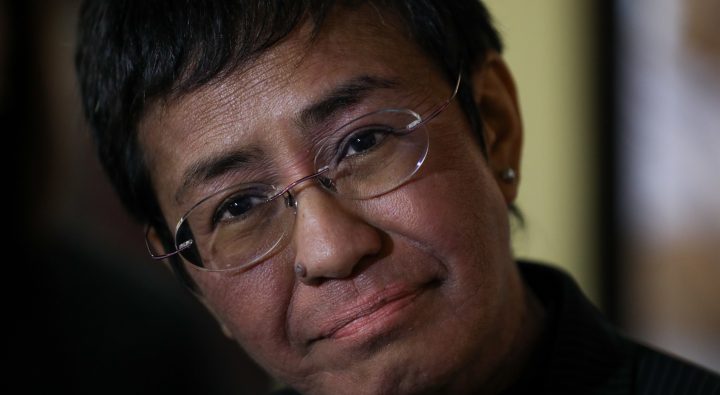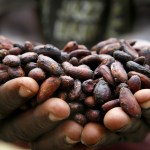OP-ED
The Philippines is one of the deadliest countries on earth to be a journalist, we cannot allow Maria Ressa to be next

The Philippines is one of the deadliest countries on Earth to be a journalist, and my gravest fear is that Maria Ressa will be the next murder victim of President Rodrigo Duterte’s regime.
“You cannot go back. The writing is on the wall. Look at Jamal, look at Daphne. Please don’t get on that plane.” These were the arguments swirling in my head over dinner with the internationally celebrated editor Maria Ressa in February, in the shadow of London Bridge. She was preparing to fly back to the Philippines and I was invoking the brutal murder with impunity of Washington Post columnist Jamal Khashoggi in a Saudi Arabian embassy, and the state-linked assassination of Maltese investigative journalist Daphne Caruana Galizia.
I did not draw these comparisons lightly, and I was not alone in drawing them. But Ressa is relentlessly optimistic, and the sense of responsibility she has for her team at Rappler – the news start-up she founded in 2011 – is unwavering. She was never going to abrogate what she believed was her duty.
So, she got back on a plane bound for Manila to face the prospect of jail, or worse, just as the Covid-19 pandemic was starting to throw a cloak over the ongoing harassment campaign waged against her by the government of President Rodrigo Duterte and his army of patriotic trolls.
Ressa entered my life in 2014 as a journalistic source and a research subject. Now, she is someone I regard as a close friend. So, for me, the concerns about her freedom and safety ricocheting globally are both professional and personal.
On Monday, the woman I think of as journalism’s “North Star” was convicted by a Manila court on a trumped-up criminal cyber libel charge, in a case that hinged on a typo. Along with her co-accused Rey Santos Jnr, she faces up to six years in jail for that conviction. But that’s not where it ends. Ressa still has seven other cases hanging over her head. In total, she could spend almost a century behind bars for publishing journalism – reportage that revealed the scale of Duterte’s campaign of extrajudicial killings in his so-called “war on drugs”, and big data investigations documenting the state-linked troll armies that destabilised Philippines’ democracy and targeted Rappler and Ressa.
“I want Maria Ressa to be raped repeatedly to death, I would be so happy if that happens when martial law is declared, it would bring joy to my heart”. – The text of a Facebook post tagging Maria Ressa from early 2017
Ressa tells people that I was the one who first convinced her to speak publicly and “shine a light” on the relentless, brutal, gendered harassment she experienced as part of the state-sponsored disinformation campaign against her. By the time she told me her story for a UN-commissioned book on journalism safety in mid-2017, she’d already lost count of the number of death threats she’d received. We sat down for our interview two days before the book went to press. In that moment she became a media freedom activist – an international symbol of women journalists’ resistance against political strongmen, and the targeted campaigns of online violence designed to shut them up.
That moves me. But it also fills me with a sense of terrible responsibility – the kind of responsibility we ethical journalists feel when we convince someone to speak candidly in the public interest, revealing their pain and fear in the process; then have to watch as a tonne of bricks comes tumbling down upon them. But Maria Ressa will never be buried in the rubble, as she made clear to me in 2017:
“It began a spiral of silence. Anyone who was critical or asked questions about extrajudicial killings was attacked, brutally attacked. The women got it worst… And we’ve realised that the system is set up to silence dissent – designed to make journalists docile. We’re not supposed to be asking hard questions, and we’re certainly not supposed to be critical. But I go and do the story even harder! I Just refuse to let intimidation win.”
That intimidation escalated dramatically in 2018. At one point Ressa was facing 11 separate charges and cases. Then, in February 2019, just days after I left her newsroom in Manila where I’d been embedded as a researcher, Ressa was arrested and detained overnight. Six weeks later, she was arrested in Manila again, after getting off a flight from the US. The filmmaker Ramona Diaz was by then following Ressa for the forthcoming film A Thousand Cuts. It powerfully documents the cascade of attacks on Ressa, providing evidence that they’re fuelled by the president himself.
Duterte is shown telling Rappler journalists at a press conference: “You reporters will be allowed to criticise us, but you will go to jail for your crime.” He refers to “that bitch in the media” in formal speeches, while musing about extrajudicial killings.
The Philippines is one of the deadliest countries on earth to be a journalist. While on the campaign trail in 2016, Duterte was asked about the shooting death of a journalist in Manila. His response: “Just because you’re a journalist, you are not exempted from assassination, if you’re a son of a bitch.” Since Duterte’s election in 2016, six journalists have been murdered with impunity, according to the Committee to Protect Journalists.
My gravest fear is that Maria Ressa will be next.
This is not just the voice of a worried friend speaking; this is a conclusion based on journalism safety and media freedom expertise. There is an established pattern of online violence – particularly targeting women journalists – preceding their murder. In a statement published on Tuesday by the Daphne Caruana Galizia Foundation, her sons drew a parallel with Maria Ressa’s case:
“Over the years, we watched the former Prime Minister of Malta Joseph Muscat and his cronies pursue increasingly deranged attacks on Daphne. These included online abuse and harassment campaigns, vexatious tax investigations, false criminal charges that were thrown out of court, and civil and criminal libel suits.
“Daphne died with five criminal libel charges and 43 civil libel suits pending against her.
“This targeted harassment, chillingly similar to that perpetrated against Maria Ressa, created the conditions for Daphne’s murder.
“The government of the Philippines is creating the possibility of a violent attack against Maria and other journalists.
“Its targeted legal harassment of Maria identifies her to Duterte’s officials and supporters as an enemy, implicitly granting them permission for further attacks.
“Media institutions all over the world recognise this and are already unanimous in their support of Maria. It is beyond time for the government of the Philippines to drop all charges against Maria and her colleagues. If it fails to do so, it risks an escalation towards violence.”
This is not just a message to Duterte’s government to desist, it is also a warning to leaders of liberal democracies who attack journalists as “enemies of the people”, and journalism as “fake news”. Such actions are not only dishonest, they can prove deadly – both domestically, and by effectively giving licence to attacks on journalists in places where they often pay a deadly price for holding power to account. What’s needed in Ressa’s case is global solidarity and diplomatic intervention from those states and intergovernmental institutions for whom media freedom and journalism safety are stated priorities.
A year ago, I gave expert evidence to the UK Parliament’s Foreign Affairs Committee inquiry into global media freedom, as the UK and Canada forged an alliance to focus on growing threats to journalists around the world – including in the US and Europe. Sitting beside me, also giving evidence, was Caoilfhionn Gallagher QC – co-lead of Maria Ressa’s international legal team. In arguing that it was imperative for liberal democratic states to condemn their allies when journalists in those countries were attacked, I pointed to Ressa’s case to demonstrate the way such solidarity can help defend journalists under intense pressure:
“She has become a cause célèbre for speaking boldly and publicly against those threats. I know that she has said publicly before, and she would want me to say again, that the international community’s support for her and for her capacity to do independent journalism under threat is something that was very meaningful and allowed the organisation Rappler to continue to operate with a sense of being shielded.
“As much as the international mechanisms are important, there is also the collective action that can support journalists on the ground to continue to report under the threat of enormous pressure and fear of violence. We have multiple roles to fulfil in that regard. We also have a role as the international journalistic community to not just lobby and speak in environments such as this, but report robustly… on some of these threats, because there is evidence that shining a light… to enable our colleagues to speak truth to power makes a difference.”
Watching the contrast of action and silence in response to this week’s abhorrent conviction of Maria Ressa for doing journalism, I’m reminded that when the bricks come raining down, true friends and allies are the ones who are never afraid to raise their voices in your defence.
Falsity takes refuge in the shadows of silence.
I am especially repulsed by journalism institutions that fail to speak up in defence of individual journalists under fire and news organisations imperilled by targeted attacks – a growing trend around the world, particularly in the context of the pandemic. Often, this official silence occurs due to politics, vested interests, or a misapprehension that researching or practising journalism somehow precludes advocacy for media freedom and journalism safety.
But none of those reasons is valid justification for institutions associated with journalism staying mute when power is abused to target journalists. Particularly when said institutions do not hesitate to exploit their association with journalism warriors like Maria Ressa and Rappler when it suits them to do so.
I’m proud and relieved to be working for a journalism organisation, the International Center for Journalists (ICFJ), that knows when and how to raise its voice. ICFJ has called publicly for the quashing of Ressa’s conviction and the withdrawal of all cases against her and Rappler. Please stand with us and the other international organisations speaking up in their defence.
The world is watching now. All those who value democracy and freedom of expression cannot afford to look away. DM
Dr Julie Posetti is global director of research at ICFJ. She is also academically affiliated with the Centre for Freedom of the Media (CFOM) at the University of Sheffield and the Reuters Institute for the Study of Journalism at the University of Oxford.


















 Become an Insider
Become an Insider